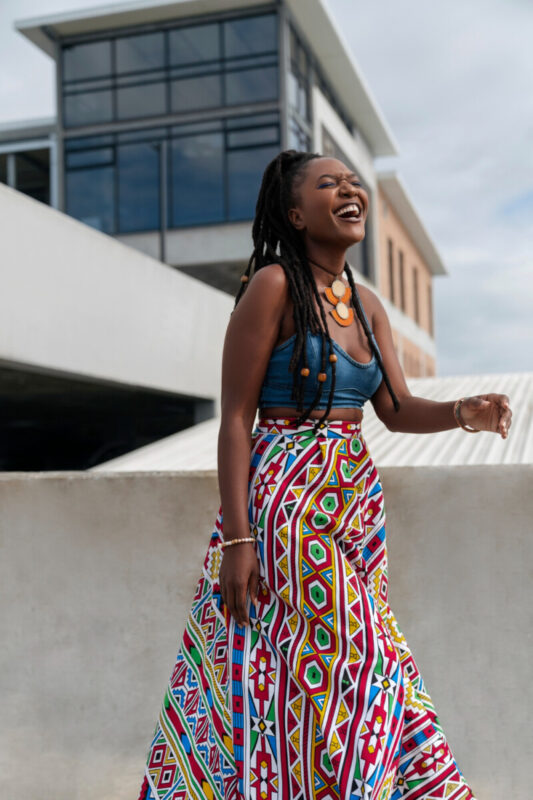The Impact of Nigerian Fashion in Global Markets: Diaspora Designers Making Waves
Nigerian fashion has become a force to be reckoned with on the global stage, thanks in large part to the creativity and innovation of Nigerian designers in the diaspora. These designers have not only preserved their cultural heritage but have also redefined it, blending traditional Nigerian aesthetics with modern fashion trends to create something entirely new and captivating. As they make waves across the world, their influence is reshaping the global fashion landscape and putting Nigerian fashion in the spotlight.
Embracing Heritage While Innovating
One of the key factors behind the success of Nigerian diaspora designers is their deep connection to their cultural roots. These designers often draw inspiration from traditional Nigerian attire, fabrics, and motifs, incorporating them into contemporary designs that appeal to a global audience. The vibrant colors, intricate patterns, and unique textiles such as Ankara, Aso-Oke, and Adire are no longer just symbols of Nigerian culture—they have become coveted elements in the global fashion industry.
However, these designers are not merely replicating traditional designs; they are innovating by merging Nigerian aesthetics with international fashion trends. This fusion creates a dynamic and versatile style that resonates with diverse audiences. Whether it’s bold, geometric prints on modern silhouettes or the incorporation of Nigerian craftsmanship into luxury fashion, the result is a fresh and exciting approach that has caught the attention of fashion enthusiasts around the world.
Breaking into High Fashion
Nigerian designers in the diaspora have also made significant inroads into high fashion, with several achieving recognition on some of the most prestigious platforms. From New York to Paris, London to Milan, Nigerian designers are showcasing their collections at major fashion weeks, earning praise from industry critics and celebrities alike.
Designers like Maki Oh, Lisa Folawiyo, and Kenneth Ize have gained international acclaim for their innovative use of Nigerian textiles and their ability to tell stories through fashion. Maki Oh, known for her reimagining of traditional Nigerian textiles and craftsmanship, has dressed high-profile celebrities such as Michelle Obama and Solange Knowles. Lisa Folawiyo has made a name for herself by modernizing Ankara fabric, transforming it into a luxury fashion statement. Kenneth Ize, a finalist for the prestigious LVMH Prize, is celebrated for his work with Aso-Oke, a traditional Nigerian handwoven fabric, which he reinterprets into contemporary pieces that resonate with a global audience.
These designers are not just participants in the global fashion industry; they are redefining it, bringing a new perspective that challenges the status quo and expands the possibilities of what fashion can be.
Influencing Streetwear and Pop Culture
Beyond high fashion, Nigerian designers in the diaspora have also left an indelible mark on streetwear and pop culture. The rise of Afrobeat music globally has brought Nigerian culture, including fashion, into the mainstream. Artists like Burna Boy and Wizkid are not just known for their music; their fashion choices have become influential, often showcasing the work of Nigerian designers.
Brands like Tokyo James and Orange Culture have carved out a niche in the streetwear scene, blending Nigerian motifs with urban aesthetics. Tokyo James, known for his edgy designs that merge African and Western influences, has gained international recognition for his bold, statement-making pieces. Orange Culture, a brand that defies gender norms and embraces fluidity, has been lauded for its unique approach to menswear, drawing attention to the richness of Nigerian culture while appealing to a global, fashion-forward audience.
This cross-pollination of fashion and pop culture has helped Nigerian fashion gain visibility and desirability on a global scale. It’s not just about clothes; it’s about a cultural movement that is being embraced by a new generation of fashion enthusiasts worldwide.
Driving Economic Growth and Cultural Exchange
The success of Nigerian diaspora designers is not just a cultural phenomenon; it also has significant economic implications. As these designers gain international recognition, they create demand for Nigerian textiles and craftsmanship, driving growth in the local economy. Moreover, they foster cultural exchange, introducing global audiences to the richness of Nigerian traditions and stories.
This cultural exchange is a two-way street, as it also inspires a deeper appreciation for Nigerian culture among those in the diaspora. As Nigerian designers continue to push boundaries and gain recognition, they not only elevate Nigerian fashion on the global stage but also contribute to a more inclusive and diverse fashion industry.
Conclusion
Nigerian fashion, led by the innovative work of diaspora designers, is making a significant impact on global markets. By embracing their heritage while pushing the boundaries of fashion, these designers are not only preserving Nigerian culture but also transforming it into a global phenomenon. Their success is a testament to the power of cultural fusion and the limitless potential of creativity in shaping the future of fashion.



